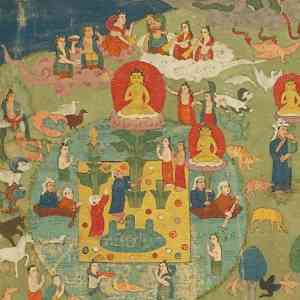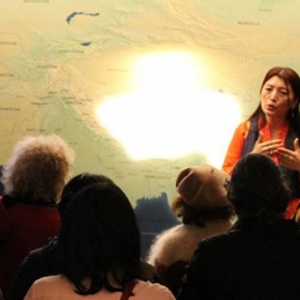
Presented by Lama Jabb
Discussants: James Gentry and Daniel Hirshberg
Facilitator: Elena Pakhoutova
Padmasambhava’s widely accepted iconic place in Tibetan cultural identity may be traced back to the 12th-century biography of the master compiled by Nyangrel Nyima Ozer, which promoted Padmasambhava as an awakened being who helped establish Buddhism in Tibet. We know little of Padmasambhava’s historical identity in the 8th century, but through these later depictions “Padmasambhava” gradually emerged as a Tibetan cultural product central to Tibetan cultural identity.
This image of Padmasambhava is not without its critics. The contemporary Tibetan author Jangbu in his acclaimed free verse poem Acts of Nyenchen Thanglha ambiguously portrays Padmasambhava and complicates the conventional, clear-cut representation of Padmasambhava as a supreme being who only had Tibetan interests at heart. Instead, his role in Tibet is depicted as an ideological invasion that eventually succeeded in the territorial takeover of Tibetan mountains—the soul of pre-Buddhist Tibet.
In the 16th and 17th centuries, Tibetan doubts about the veracity of the idealized accounts of Padmasambhava’s life became so vocal they prompted a series of apologetic biographies attempting to address such critiques.
To inquire into the contested roles of Padmasambhava in Tibetan history and cultural identity, the presenter and discussants use original sources, biographies, contemporary literature, and academic contributions to broadly ponder how dynamic encounters with foreign civilizations have been foundational in the formation of Tibetan culture and remain vital to its survival.



